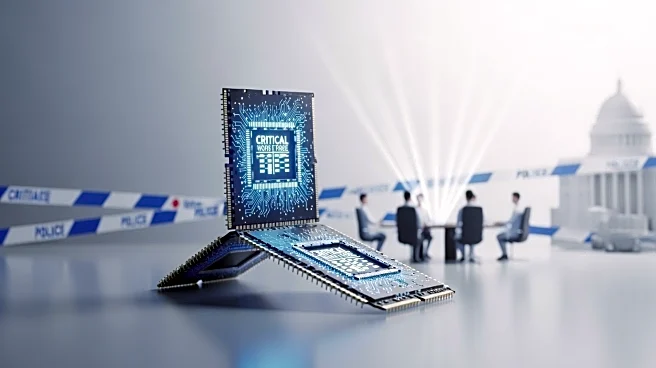What's Happening?
Micron Technology, Inc. has been involved in an inter partes review concerning the patent claims of Yangtze Memory Technologies Company. The Patent Trial and Appeal Board (PTAB) determined that certain
claims related to structures and methods for forming 3D memory devices were unpatentable due to obviousness over prior art. The board's decision focused on claims that pertain to a three-dimensional semiconductor memory device with enhanced integration density and its manufacturing method. This ruling is part of a broader legal examination of patent validity in the technology sector, particularly concerning innovations in memory device architecture.
Why It's Important?
The PTAB's decision has significant implications for the semiconductor industry, particularly in the realm of intellectual property rights and innovation. By ruling certain patent claims as obvious, the board potentially opens the door for other companies to develop similar technologies without infringing on existing patents. This could lead to increased competition and innovation in the 3D memory device market, benefiting consumers and businesses seeking advanced memory solutions. However, it may also impact Yangtze Memory Technologies Company's market position and its ability to protect its intellectual property, potentially affecting its business strategy and partnerships.
What's Next?
Following the PTAB's ruling, Micron Technology and Yangtze Memory Technologies Company may consider further legal actions, such as appeals or negotiations for licensing agreements. The decision could prompt other companies to reassess their patent portfolios and strategies in light of the board's interpretation of obviousness. Industry stakeholders, including competitors and investors, will likely monitor the situation closely to gauge its impact on market dynamics and future technological developments in the semiconductor sector.
Beyond the Headlines
The case highlights ongoing challenges in patent law, particularly in defining the boundaries of innovation and obviousness. It underscores the importance of robust patent strategies for technology companies to safeguard their innovations while navigating complex legal landscapes. The ruling may also influence future patent filings and the criteria for patentability in the tech industry, potentially shaping the direction of research and development efforts.











